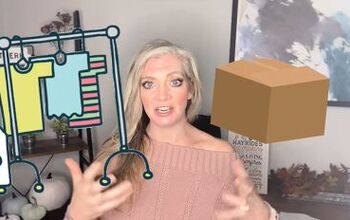1.6K Views
6 Things You Should Know Before Buying a House

by
Kala Wiederholt
(IC: blogger2.0)
So – homeownership is no joke. There’s the moving, and the unpacking, and the yard mowing, and the door locking (so many doors), and the trash days, and the painting, and the still unpacking, and the neighbors, and the not feeling like home, and the trying to live life while still, still unpacking. We’ve been here about 2 weeks now, and I can’t believe time is passing so quickly!
There is so much responsibility that comes with owning a home, but it’s also exciting to plan out projects and new ways to make it our own. Overall, I think it was definitely worth the turmoil of the home-buying process, but ask me again when our first mortgage payment is due and we keep having to shell out all the money for projects. Looking back on that process, there are definitely some things I wish we were prepared for as first time homebuyers.
There is so much responsibility that comes with owning a home, but it’s also exciting to plan out projects and new ways to make it our own. Overall, I think it was definitely worth the turmoil of the home-buying process, but ask me again when our first mortgage payment is due and we keep having to shell out all the money for projects. Looking back on that process, there are definitely some things I wish we were prepared for as first time homebuyers.
1. Before looking at houses, meet with your realtor to discuss future expenses and go over the entire home buying process.

Want more details about this and other budgeting & minimalist living ideas? Check out more here!
Published June 1st, 2015 11:31 AM



















Comments
Join the conversation
My daughter & I bought a house together 6 months ago. Thought we were leasing house back to owner for 30 days & she then asked for 60 but did not want to pay for time so we negotiated for washer, dryer, 2 couches and refrigerator to be left. She was moving to assisted living so have 3 yr old appliances and virtually new couches was great! Warrantees for new HVAC, roof done 2 yrs ago, gutted bathrooms, flooring and kitchen were promised but we're not at closing, we're promised to have been left in house but weren't & when checked with city, no permits for all work were never pulled. We don't think that quality workmanship was ever done! Inspector missed a few things, thinking that things were new but plumbing problems in bathroom, a roof leak and a few things he said worked that don't & didn't when we moved in. We have 2 yrs in our state to sue him so have now taken out home warranty repair services to cover the things we have yet to discover and having all major systems rechecked. Never something we expected! Former owner has no idea who did any of the work, found out roofer from a neighbor (50 yr warranty!) and her realtor & children don't have a clue (& don't really care!). Been a real eye opener!
I'm a lawyer, and she's right about its being better for both names to be on both the deed and the mortgage, for the reasons she states. Also, although our state considers the house to be her property too even if they divorce, if she decides to keep the house and assume the payments, it will be be easier for her. 1) She won't have to try to qualify for a mortgage during an already stressful time; and 2) Divorce often has a bad effect on people's credit, which could make it harder for her to get the mortgage.